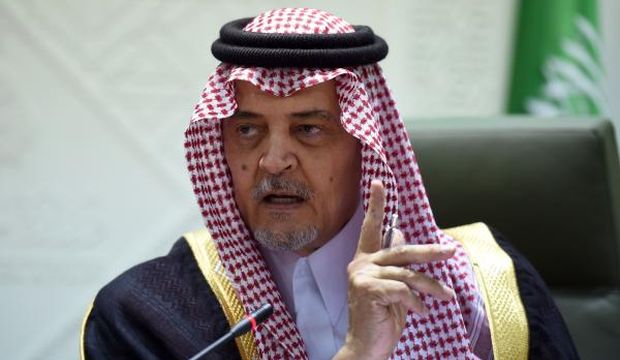Those who do not know him will say he is an adept foreign minister and a faithful politician. Those who do know him will say, in addition to the above, that he is a master, and a cultured and well-read man of the highest caliber, the likes of which we see only every now and again in the annals of Islamic and Arab history. One can only marvel at the man’s astuteness and eloquence, at his soft-spoken words and decisive actions.
When I read the news that he had resigned from his post as Saudi Arabia’s foreign minister, I told my friends with whom I was sitting at the time that those who had described Prince Saud Al-Faisal as the “Kissinger of Arab politics” had truly done the Prince a disservice; for he stands alone: as the Saud of Arab politics, the Saud of international politics.
I wish I could have told them of the countless stances he took throughout the last four decades. During that time he formed the fulcrum of stability in the region, a man of peace whose efforts resulted, by the grace of God, in uniting groups in our region who had for years been in conflict and disagreement. One of his most prominent achievements was bringing together Lebanon’s disparate political factions to one negotiating table in 1989 in order to end the civil war in the country, in what later became known as the Taif Agreement.
From this great man I have learned many things. Among the most wonderful of these are his abundant modesty and his painstaking care to ensure that his achievements remained unknown to the wider public, something he did in order to keep his efforts sincere—which contrasts starkly with the behavior of many other foreign ministers, who always seem eager for any publicity, to take part in any event, and to boast of their achievements even if they are insignificant. Prince Saud seemed to take great pleasure from achieving an important goal—and even more so when the world did not know that he was the hidden dynamo, the silent conductor behind its success.
Another thing I learned from him was his clarity and uncompromising sincerity. The topsy-turvy world of politics is awash with subterfuge and false compliments given to those who do not deserve them. But Prince Saud, always the epitome of politeness, took clear, firm positions with his peers in the world of international politics and diplomacy, and always said what would satisfy his own conscience and achieve the best for the region. His word was as strong as an international agreement, and his unflinching honesty drove even those who did not agree with him to seek his counsel during times of trouble and crisis.
As far as time was concerned, Prince Saud was its faithful guardian. He never missed a single meeting nor wasted time during discussions with idle talk. He always aimed to achieve a great deal in a short space of time. It was not unusual to see him having breakfast in one country, lunch in another, and dinner on his plane on his way back to Saudi Arabia. His abundant energy and industriousness would frequently embarrass other foreign ministers, and the rest of us mere mortals could only follow in his rapid footsteps, trying desperately hard to catch up, succeeding on some occasions and failing on many others. He raised the bar for Arab diplomacy, propelling it from being a mere profession to a lifelong mission and vocation to safeguard the interests and future development of one’s respective country.
Mikhail Gorbachev once said: “If I had a man like Saud Al-Faisal, the Soviet Union would never have collapsed.” Those who know Prince Saud are aware of his extraordinary intelligence and uncanny astuteness, which regularly made those gathered at the negotiating table desperate for him to say more. But he was content to say only what mattered and what was direct and unequivocal. His reading of various situations sometimes seemed almost preternatural: he would be able to dissect ongoing events with piercing and astonishingly incisive analysis at lightning speed, making decisions whose results at the time seemed improbable and even outlandish. But, of course, with the passage of time, we would all see how right he was.
One of my friends once asked me to describe Prince Saud in one word. I replied with: “dynamic.” For I have never seen a foreign minister with his level of dynamism. Indeed, his unbridled energy and passion for his work were some of his most important and attractive qualities as an individual. As the poet Al-Mutanabi says:
“Without hardship everyone would prevail,
The generous are poor, and courage kills its own.”
I cannot imagine what Arab foreign ministers’ meetings will now be like without Prince Saud. And even though his presence will always be felt in some way—since it was he who laid the cornerstones of modern Arab diplomacy—without his actually being there we will always feel something centrally important is missing from the scene.
As for our hearts, they will remain filled with love for this noble man, for whom I ask God to grant abundant health, and a long and happy life.
